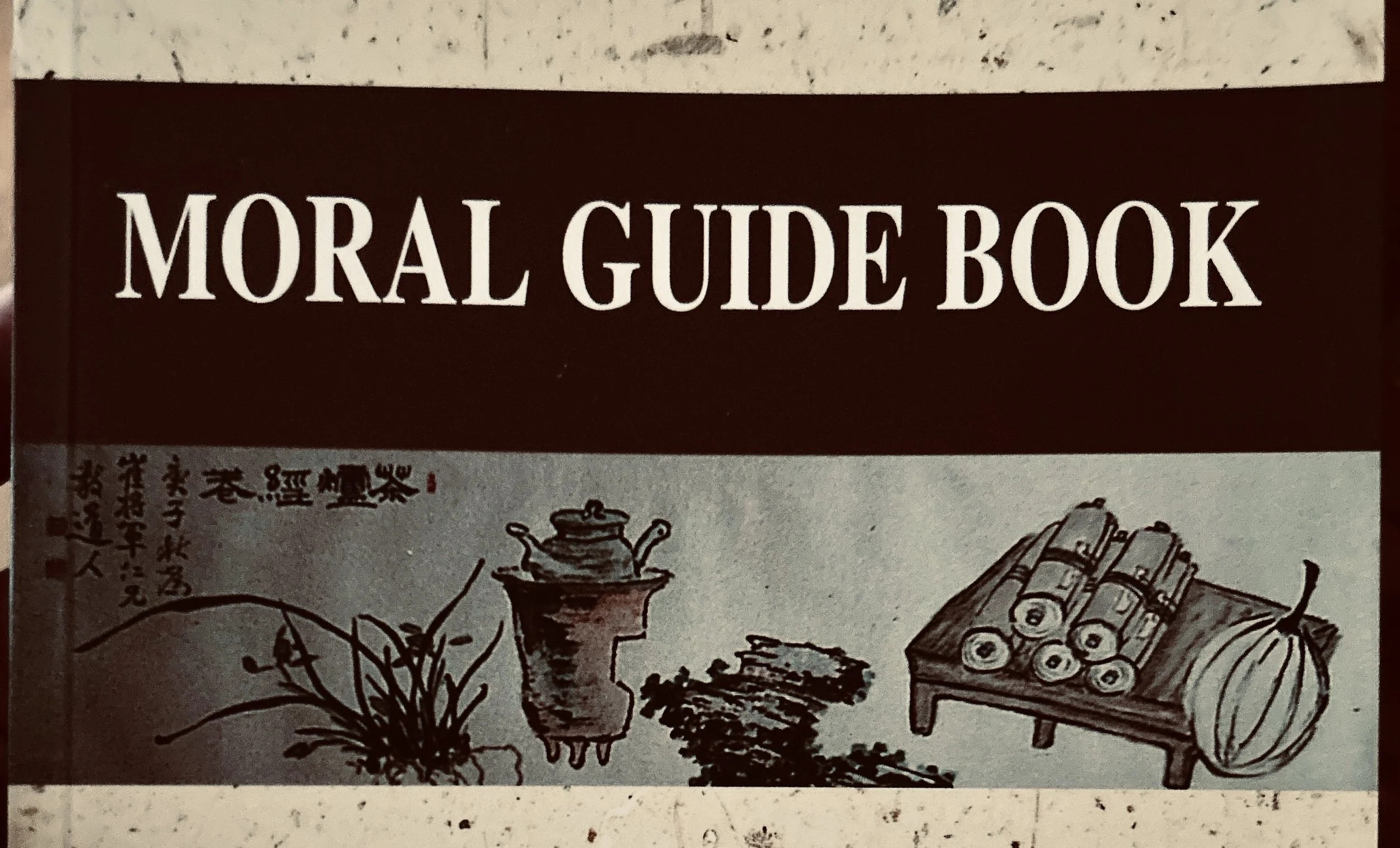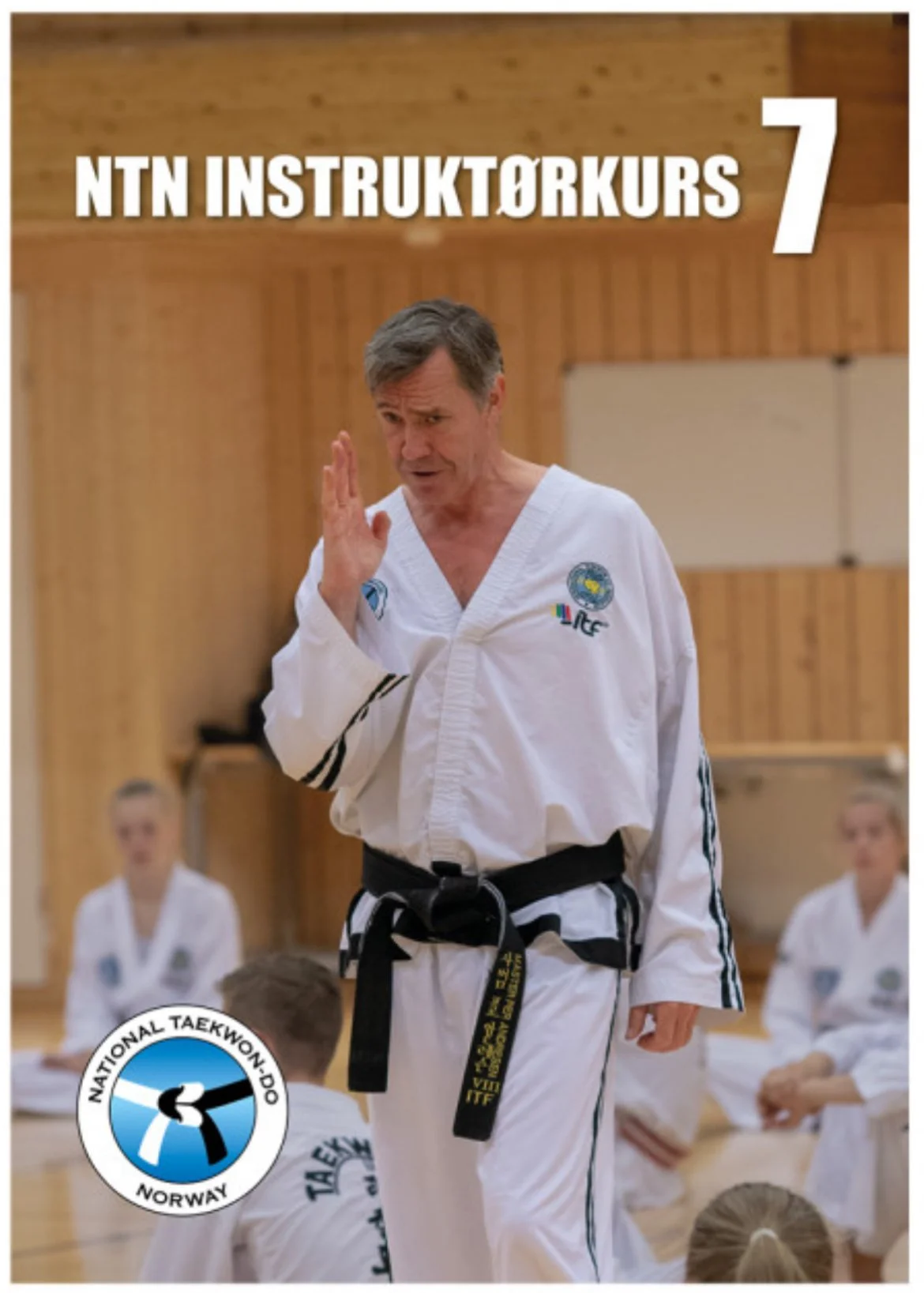The Moral Guide Book, The Ethical Backbone of ITF Taekwon-Do
By Roy Rolstad, VI Dan, ITF Taekwon-Do
When people think of Taekwon-Do, they often picture powerful kicks, sharp hand techniques, and the precision of patterns. But for those of us who have lived this art for decades, there is something deeper, something that keeps Taekwon-Do from being just another way to punch and kick. That “something” is moral culture.
In the ITF, moral and ethical standards have been there from the very beginning. General Choi Hong Hi embedded them into the DNA of the art itself, and they are explained in depth in the ITF Encyclopedia. The Moral Guide Book took those existing principles and placed them into a short, accessible volume that students and instructors could carry, read, and apply more easily.
Why General Choi Published It
General Choi understood that while the Encyclopedia is the definitive technical and philosophical reference for ITF Taekwon-Do, not everyone would read its thousands of pages cover to cover. By producing the Moral Guide Book, he distilled the essential ethical principles into a form that could be taught in class, referenced at gradings, and shared worldwide.
It wasn’t introducing something new, it was shining a brighter spotlight on what had always been there.
What’s Inside
The Moral Guide Book is divided into sections that feel almost timeless. They don’t just speak to martial artists, they speak to human beings.
The Five Tenets – Courtesy, Integrity, Perseverance, Self-Control, and Indomitable Spirit, expanded with context, examples, and stories that turn abstract values into practical actions.
The Student’s Oath – Line by line, it’s broken down into what it means to truly uphold justice, respect your seniors, and dedicate yourself to self-betterment.
Etiquette & Protocol – The discipline of the dojang becomes the discipline of life. From how you bow to how you show respect to others, it’s about consistency in behavior.
Moral Stories – Parables from Korean history, Confucian thought, and martial folklore that show virtue in action, not just in theory.
Black Belt Responsibilities – Why dan rank is a position of service, not entitlement.
Why It Mattered Worldwide
By the time the Moral Guide Book was published, ITF schools already understood that moral culture was a core part of the art. What the book did was make that culture more accessible and consistent across countries.
It gave every school, from Oslo to Ulaanbaatar, a single, portable reference point. Whether you were training in Europe, Africa, Asia, or the Americas, you could hold that book in your hand and know that the moral expectations were the same because they came directly from the founder’s original vision.
Not Just a Black Belt Thing
Some people think of moral philosophy as something you learn “later” in martial arts, after the kicks and punches are mastered. General Choi flipped that idea on its head. The Moral Guide Book makes it clear, ethics come first, techniques second.
That’s why many instructors require students to know passages from this book before a grading. Some even read from it during classes. In my own teaching, I’ve found that introducing these principles early shapes not only better martial artists, but better people.
The Standard It Reinforced
The Moral Guide Book didn’t change the ethics of Taekwon-Do, it reaffirmed them. It reminded us why ITF practitioners worldwide:
Bow the same way.
Speak to seniors and juniors with mutual respect.
Hold themselves accountable both inside and outside the dojang.
View their martial ability as a responsibility, not a privilege.
It’s not just about knowing the Five Tenets, it’s about living them daily, in traffic, in the workplace, in the way we treat others when no one is watching.
Why It Still Matters Today
In a time when martial arts can be commercialized, diluted, or stripped of their original philosophy, the Moral Guide Book is our anchor. It distills the timeless moral culture of Taekwon-Do into a format that’s impossible to ignore.
And this is where I see a perfect alignment with ITF Radix and my own role as an NTN member and instructor under Grand Master Per Andresen. In NTN, moral culture isn’t just a subject in a manual, it’s the lifeblood of the organization. This is most clearly seen in the NTN Instructor Education program, where Ethics and Moral are given special focus in Instructor Courses 1 through 7. GM Andresen has cultivated a generation of instructors who see teaching not only as the passing on of techniques, but as a responsibility to develop character and integrity in every student.
With the ITF Radix project, where we emphasize real-world application and a deep understanding of patterns, we share that same vision. We want to highlight moral culture in everything we do because it’s what makes our training meaningful beyond the mat. You can train to be effective in a fight, but without the ethics to guide when and why to use your skills, you’re missing the very soul of Taekwon-Do.
Techniques evolve, training methods adapt, and moral culture is also changing with time, it’s always in motion. What was ok to say and do twenty years ago is a no-no today. The Moral Guide Book is standing firm in the sands of time, and it’s more than just a publication, it’s a portable reminder of the values that have been part of ITF Taekwon-Do since its inception, and for me, a shared heritage between ITF Radix, NTN, and ITF. It’s a promise that the art will always be a force for good.




